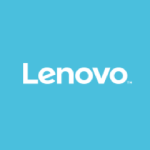How has it helped my organization?
With the AFF, we can run VMs with databases now. That was one of the big features with the AFF, we needed the speed for databases. By moving them over, we can put VMDKs housing databases on there and use them on the VMware infrastructure now.
Learn about the benefits of NVMe, NVME-oF and SCM. Read New Frontiers in Solid-State Storage.
What is most valuable?
The AFF we have, we use the in-line compression. The in-line dedupe, and the compaction saves us a lot of space because most of our AFFs house VMware VMDK files. We got a lot of compression, a lot of efficiency out of the dedupe because a lot of the VMware are similar with the OS, VMDKs, etc. It makes it really compact. You can put a lot of stuff in a little space.
What needs improvement?
That's a hard question to answer off the top of my head. I'd have to go through and evaluate everything. Right now, it fits our needs. I'd have to evaluate what else I'd like to see, I guess.
While not for AFF specifically, for clusters in general, it would be nice to be able to have volumes everywhere. For example, now you have volumes tied to a node tied to an HA pair. It would be much better if you had it more like the way they do Metro Clusters, where they have a switch, and the storage is all attached to a switch. Then, they have a volume owned by something and have it should be able to move around to anywhere based on ownership of a volume, as opposed to between HA pairs. That would be a good improvement in their infrastructure.
What do I think about the stability of the solution?
The NetApp AFF itself, the FAS's, they're stable. They're in a cluster mode, they're HA, so we fail them over, we have upgraded fail back. We've never had an outage due to NetApp in the 12 years that I've been there.
Learn about the benefits of NVMe, NVME-oF and SCM. Read New Frontiers in Solid-State Storage.
What do I think about the scalability of the solution?
Scalability, it's like anything else. The ability now to take out and add shelves, pull out shelves from the middle of an array if you want, to upgrade them, to pull heads out, and put new heads in as a non-forklift upgrade. All that functionality and scalability is one of the things that makes NetApp really good for our environment.
How are customer service and technical support?
We use tech support for everything. Since it's a cluster, something that's not specific AFF, it's just nodes in the cluster. But we use support all the time.
Tech support is like everything else. It's hit or miss. It depends on who you get and what the subject matter is. We had a Support Account Manager (SAM) at one point too and, when we had the SAM, it was a lot easier to work with their support through the SAM. We've dropped the SAM stuff.
Sometimes it's difficult to escalate correctly and get the right people involved. It's not been as bad as it was before we had the Support Account Manager (SAM) though. Our SE helps a lot as well. It's pretty good support. We just had a support call yesterday with him and the guy we got was knowledgeable about what our problem was, so it worked out pretty well.
Which solution did I use previously and why did I switch?
We've been a NetApp customer for 10 to 12 years now. We use their non-flash stuff a lot. We use hybrid flash, and after that, hybrid arrays. All Flash was the next logical move. Our next move is going to be the object storage, as well to spin off some of that data, the snapshots, on to object storage, because they've got flex groups.
How was the initial setup?
I was involved and it was seamless. We had a two-node star cluster with AFAs on them. NetApp did the install. A few years ago, we used to do our installs ourselves, as a company. Then we started using NetApp installation services to do them. They did the install. They inserted it seamlessly into our cluster. It came up, we had the arrays, and we could create aggregates on it, pretty much right after they got them installed.
Which other solutions did I evaluate?
We're using NetApp now as our hybrid storage. We have VMs on there. They wanted to put databases on the VMs. We said, "Well, we don't have the speed to put your databases on there. If you want to stay on the NFS structure with NetApp, the next logical solution is just to put you on All Flash, so we just throw some of those in the cluster and do a motion of your volumes over."
For All Flash, we have a SAN infrastructure and a NAS infrastructure. We use the EMC for the SAN infrastructure, for the block. NetApp is the only NAS we have. There's not much else we can look at besides Isilon. Isilon just isn't fast enough. It's slower than what we had them on at the beginning. NetApp was really the only logical choice for that particular environment if we wanted to use NAS.
What other advice do I have?
The primary use case for our All Flash FAS (AFF) system is pretty much VMware and its servers. It's just for file storage right now, for NFS, for the VMware stuff. We're investigating using it for other things. It's also used as a Zerto, a web application depository for some of the Zerto replication for the VMware stuff.
We use it for our mission critical stuff right now, as our VM infrastructure.
The most important criteria, when selecting a vendor to work with is functionality. I look at the functionality of the systems, what they provide us, what the features are, and where they're going, and what we need. Then, after that, I'll look at support. Of course, my company wants to look at market share and similar thing to it, but I look at the those things last. I look at the functionality first.
I give it a nine out of 10 because nothing's perfect. It works really well for what we want to do with it. It may not work well for other people. But in my experience, nine is where I would put it. It's functional, it's expandable, no forklift upgrades, and no disruptive upgrades, even for the OS or for the hardware itself. The flexibility of moving things around. All of its features, including its SnapMirror functionalities, make it really good for our environment.
All the features and their flexibility is where I would give it the bigger rating. What would make it a 10 out 10 is better support.
Regarding advice, it's the same advice you give to everybody. Evaluate what your criteria are, then look at NetApp. If you're looking for NAS, even for block, NetApp to me is mid-to-high level block. If you're looking for certain things in block, something else might be better, as opposed to FAS. You can look at NetApp for their other products. Look at NetApp for their file system for; FAS, look at their block stuff. Look at their stuff because all their stuff is available for use, it's just that the FAS itself is not suitable for everything, but they have other stuff that is.
Disclosure: I am a real user, and this review is based on my own experience and opinions.












